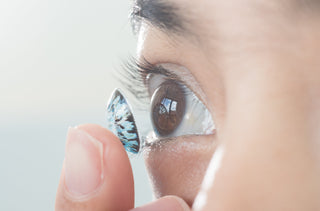Have you ever wondered what a comprehensive eye examination by your optometrist entails? An eye exam is an essential part of preventive health care. It can detect eye diseases and disorders such as glaucoma, cataracts or macular degeneration, and other health problems such as diabetes or high blood pressure.
Here are the steps of your comprehensive eye exam at IRIS.
- First, the optometrist takes a case history of your past or present medical and vision problems and a detailed family history.
- The case history is followed by an analysis of your visual needs at home, work, school and play, as well as questions about the environment and conditions in which your vision is used.
- Measurement of the visual acuity of each eye, individually and together, with and without corrective lenses.
- Evaluation of your binocular vision (ability to see using both eyes together), including eye coordination, depth perception and eye movements or, in some cases, hand-eye coordination.
- Evaluation of colour perception, if needed.
- Evaluation of the eye's health, both internally and externally, using a biomicroscope, ophthalmoscope and pupillary dilation examination when required.
- Neurological evaluation of the visual system, including examination of pupillary reflexes, ocular muscle function, and peripheral vision assessment
- Screening tests for glaucoma, including intraocular pressure testing, an examination of the eye's interior at the retina and optic nerve level, and evaluation of peripheral vision.
- Finally, a diagnosis of the refractive status (focusing power of the eye) based on a combination of objective and subjective techniques.
All these tests are used to establish a final analysis to determine the most appropriate lenses to prescribe to treat your vision defect, develop an ocular exercise program, or recommend medical or surgical treatment.
If your last complete eye exam was over 2 years ago, we invite you to schedule an appointment to check your eyes by clicking here.





















































